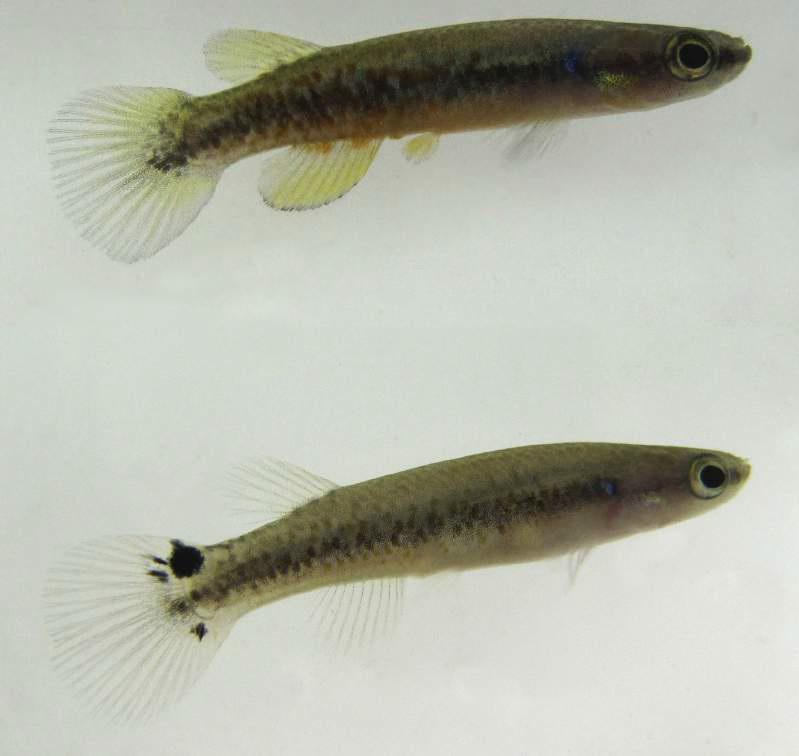Rodet Rodríguez Silva
Other projects
13 Jul 2011
Molecular Diversity of Gambusia Fishes in Cuba - Relevance for Conservation and its Use in Vector Control Plans
21 Apr 2015
Education of Local Communities Applying a Pilot Program Aimed to the Conservation of Vulnerable Freshwater Fish Species in Cienaga De Zapata National Park, Cuba
The aims of this project are to provide ecological information and determine current threats of freshwater fish in western Cuba as well as improve a training program in rural communities for conservation both fish and their habitats.

Rivulus berovidesi sp. n., life coloration in males (above) and females (below) in specimens just after collection in the field.
The knowledge related with basic life history traits is an essential tool to implement conservation and management plans for any species. A lack of information of these details may lead a management plan to fail, in fact to the lost of biodiversity. Studies regarding to natural history of Cuban freshwater fish are scarce and very little-known. In consequence there are few qualified personnel able to carry out conservation and effective management on natural population of fish. In this project we will provide ecological information and determine current threats of freshwater fish in western Cuba. In addition we will improve a training program in rural communities for conservation both fish and their habitats.
The project will be implemented in three localities situated in western Cuba: Sierra del Rosario Biosphere Reserve (Artemisa province), Los Indios Ecological Reserve (Isla de la Juventud municipality) and Cienaga de Zapata National Park (Matanzas province). All these areas include management categories and a technical staff for conservation of nature. We will carry out four field trips to each locality during one year both in wet and dry season. Two of these field trips will be destined to carry out field work in each locality. In each field trip will be measured biotic and abiotic variables and will be done analysis of stomach content for predator alien species. In addition will be evaluated the habitat conservation conditions in each locality (focused in water pollutants sources). These activities will provide ecological details and determine current threats of freshwater fish in western Cuba. These information are essential both conservation and management of fish.
The other two trips will be designed to accomplish educational activities like workshops regarding freshwater fish conservation in each visited locality. These activities will be aimed to technical staff of each area and local communities and designed to prepare local team members to continue fish’ conservation works in the future.